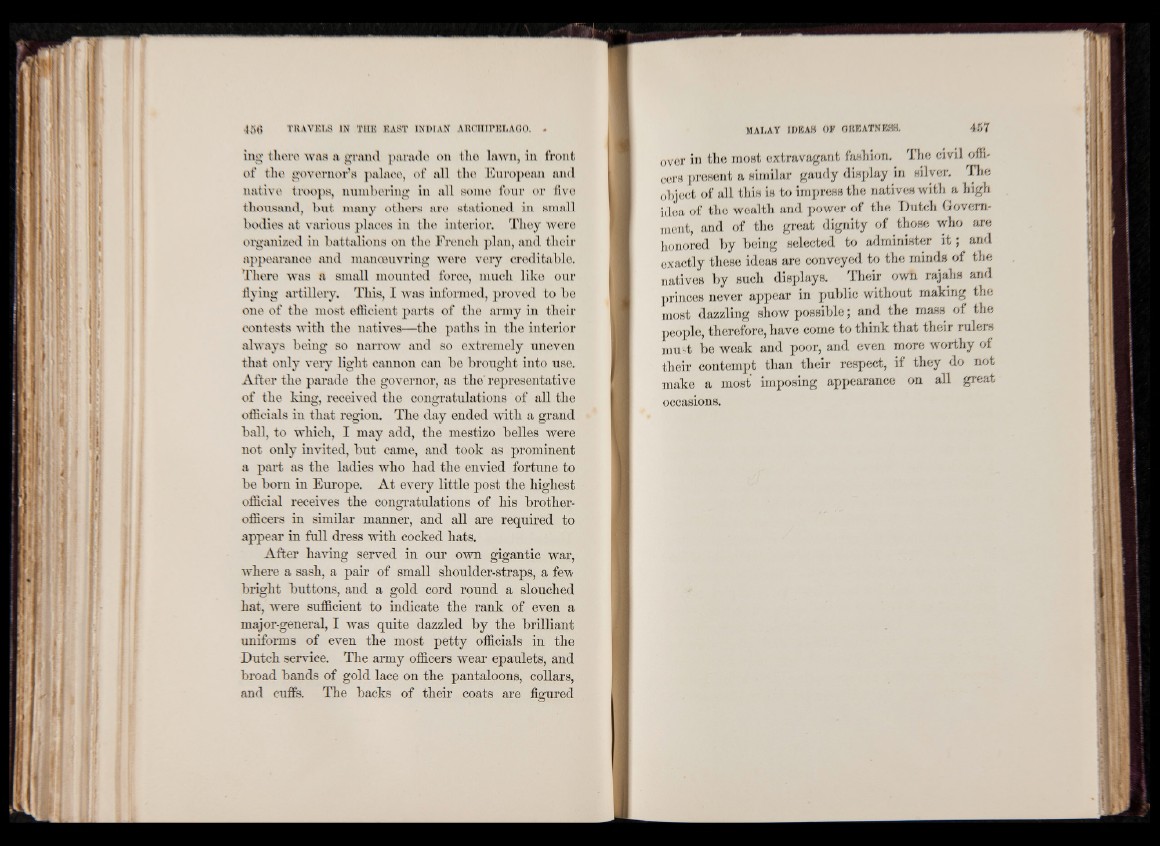
ing there was a grand parade on the lawn, in front
of the governor's palace, of all the European and
native troops, numbering in all some four or five
thousand, but many others are stationed in small
bodies at various places in the interior. They were
organized in battalions on the French plan, and their
appearance and manoeuvring were very creditable.
There was a small mounted force, much like our
flying artillery. This, I was informed, proved to be
one of the most eflicient parts of the army in their
contests with the natives—the paths in the interior
always being so narrow and so extremely uneven
that only very light cannon can be brought into use.
After the parade the governor, as the' representative
of the king, received the congratulations of all the
officials in that region. The day ended with a grand
ball, to which, I may add, the mestizo belles were
not only invited, but came, and took as prominent
a part as the ladies who had the envied fortune to
be born in Europe. At every little post the highest
official receives the congratulations of his brother-
officers in similar manner, and all are required to
appear in fall dress with cocked hats.
After having served in our own gigantic war,
where a sash, a pair of small shoulder-straps, a few-
bright buttons, and a gold cord round a slouched
hat, were sufficient to indicate the rank of even a
major-general, I was quite dazzled by the brilliant
uniforms of even the most petty officials in the
Dutch service. The army officers wear epaulets, and
broad bands of gold lace on the pantaloons, collars,
and cuffs. The backs of their coats are figured
over in the most extravagant fashion. The civil officers
present a similar gaudy display in silver. The
object of all this is to impress the natives with a high
idea of the wealth and power of the Dutch Government,
and of the great dignity of those who are
honored by being selected to administer it ; and
exactly these ideas are conveyed to the minds of the
natives by such displays. Their own rajahs and
princes never appear in public without making the
most dazzling show possible ; and the mass of the
people, therefore, have come to think that their rulers
inu-t be weak and poor, and even more worthy of
their contempt than their respect, if they do not
make a most imposing appearance on all great
occasions.